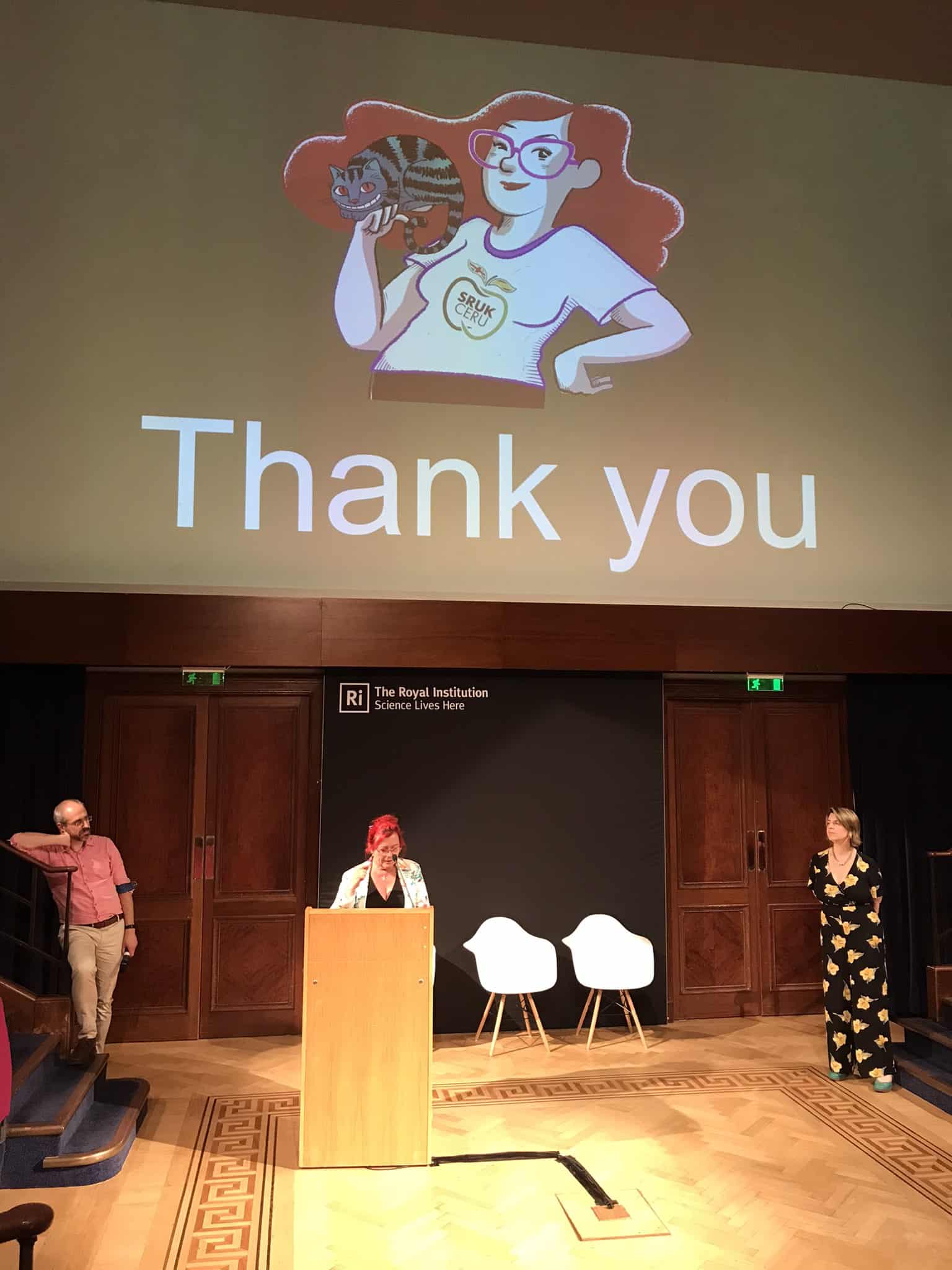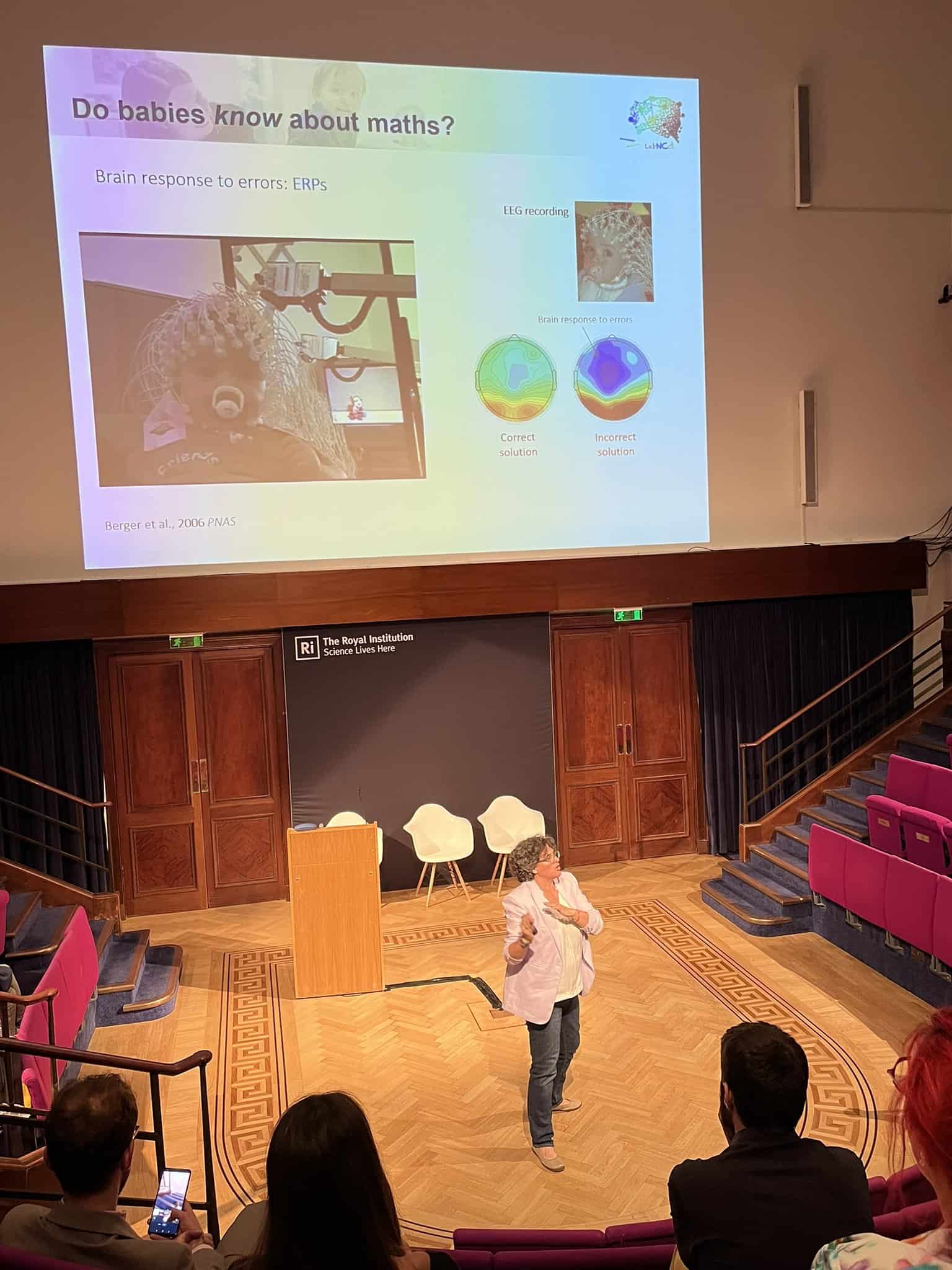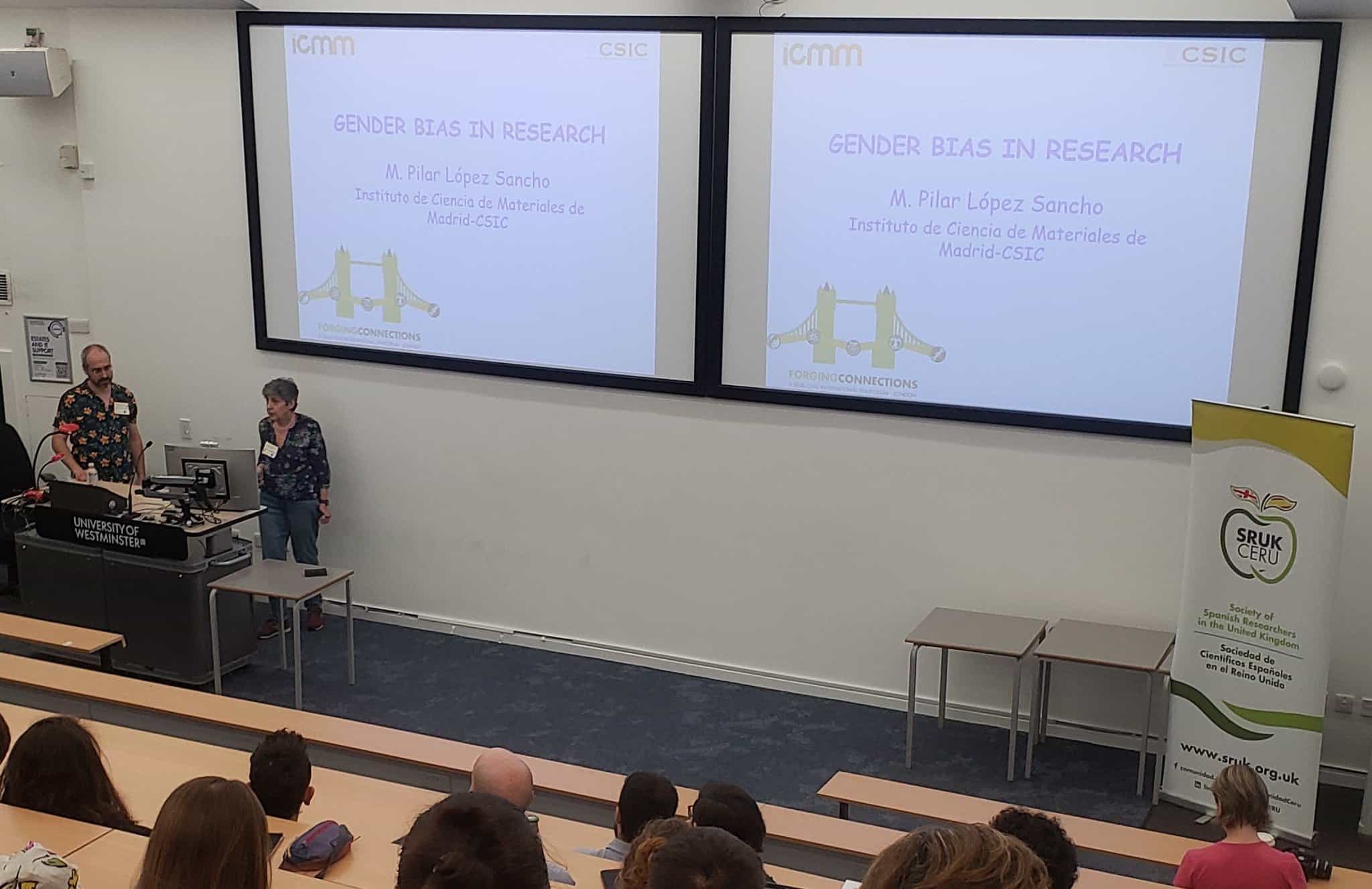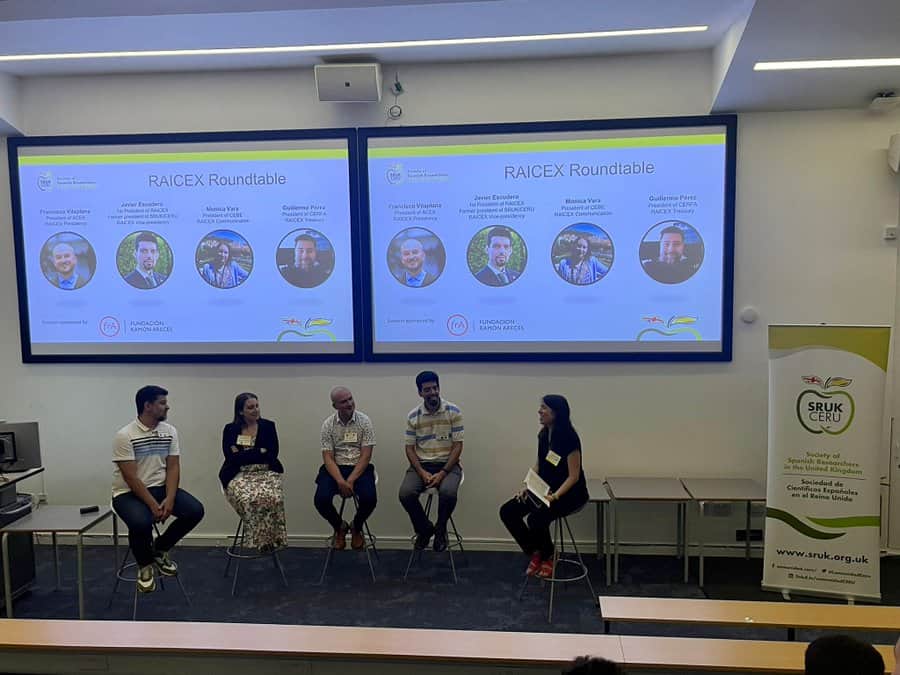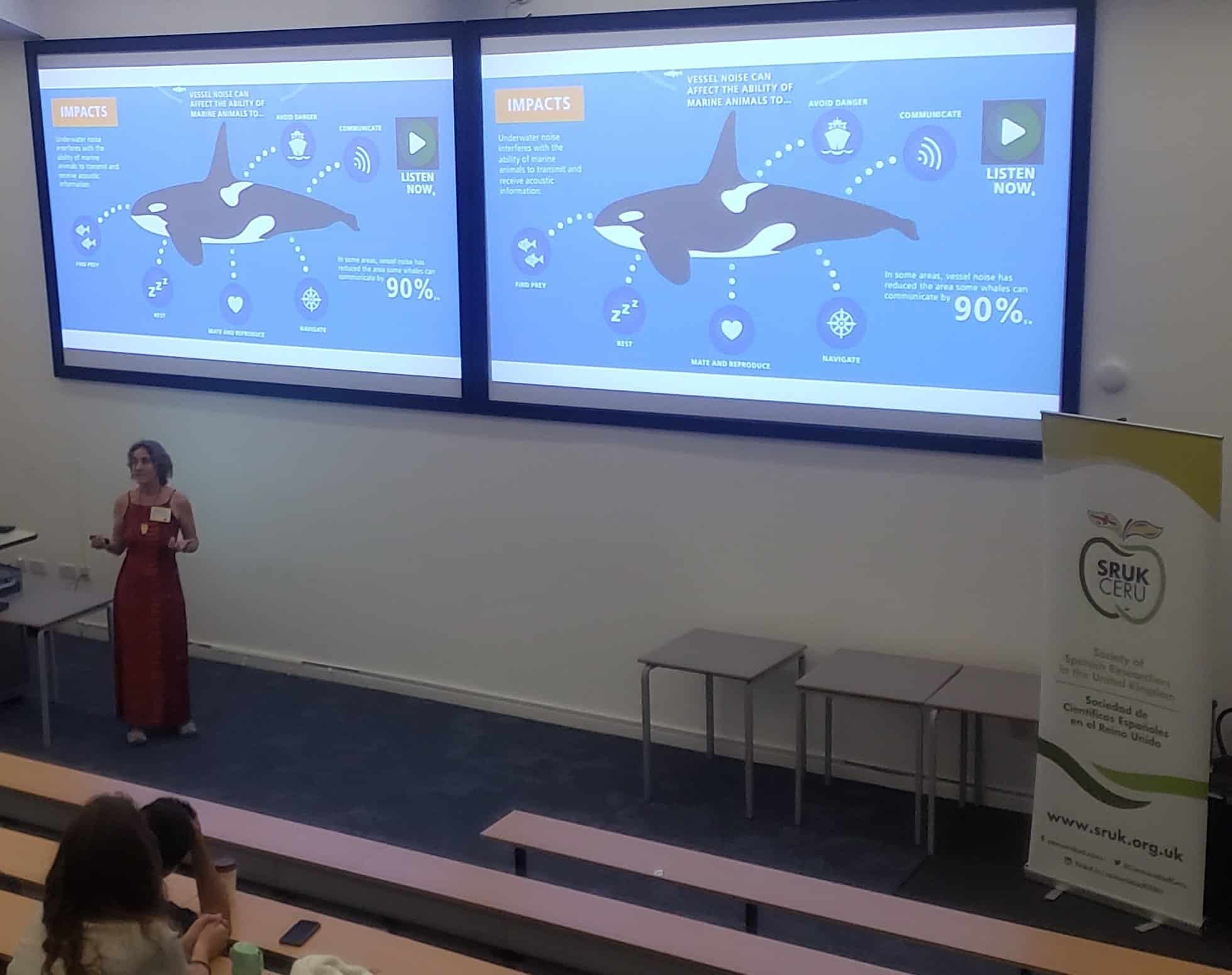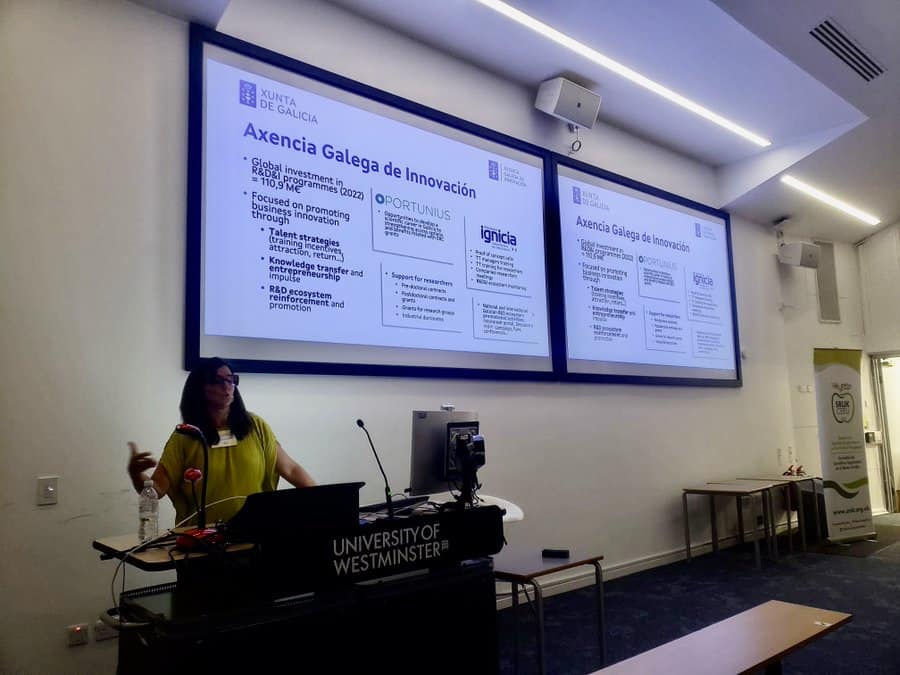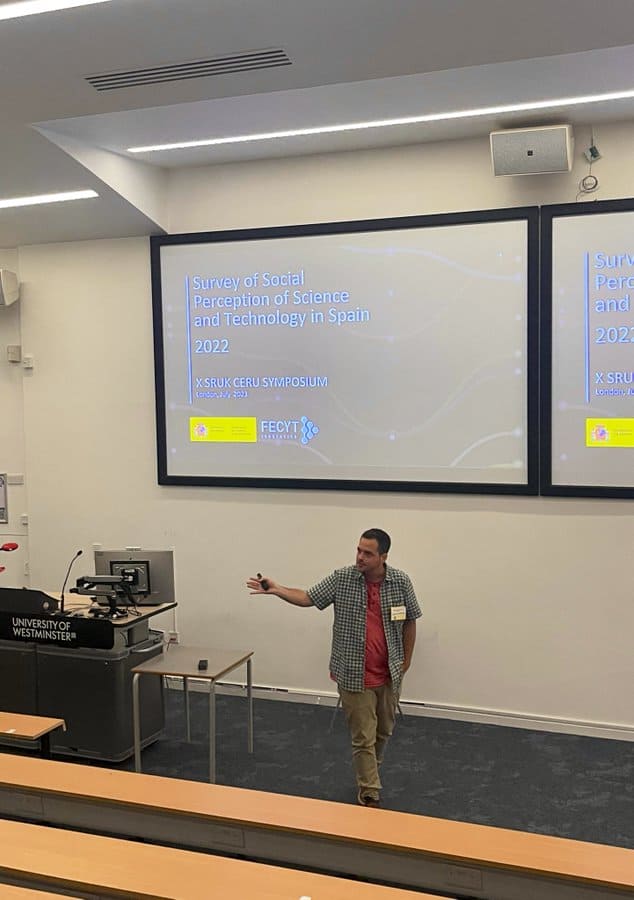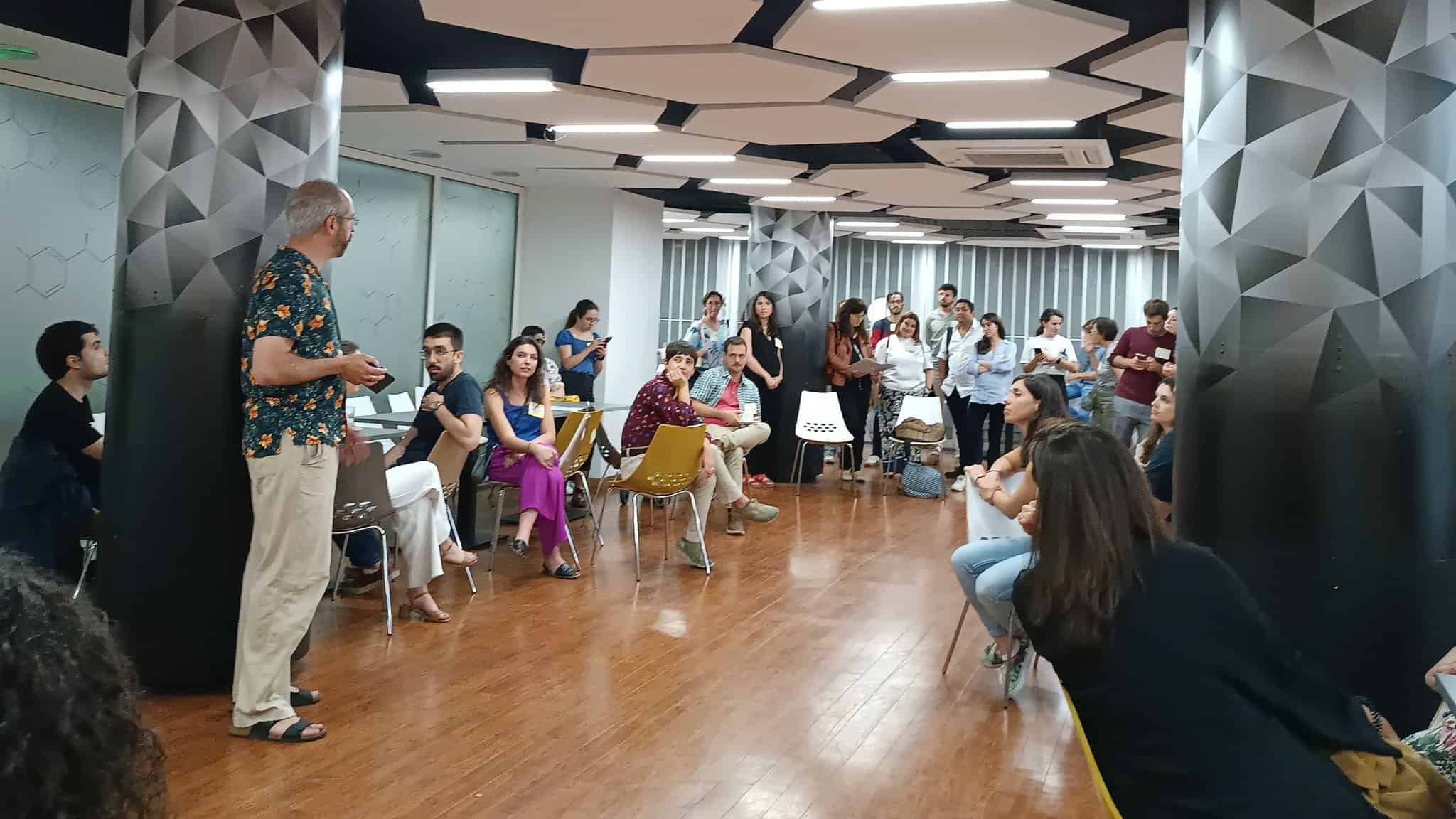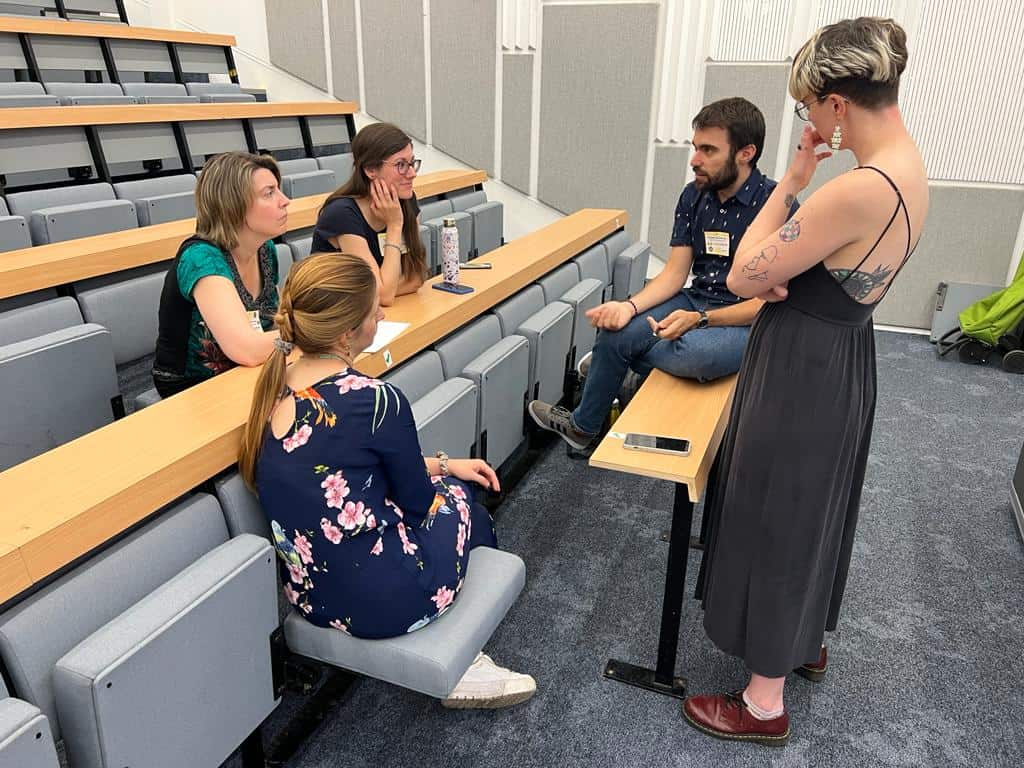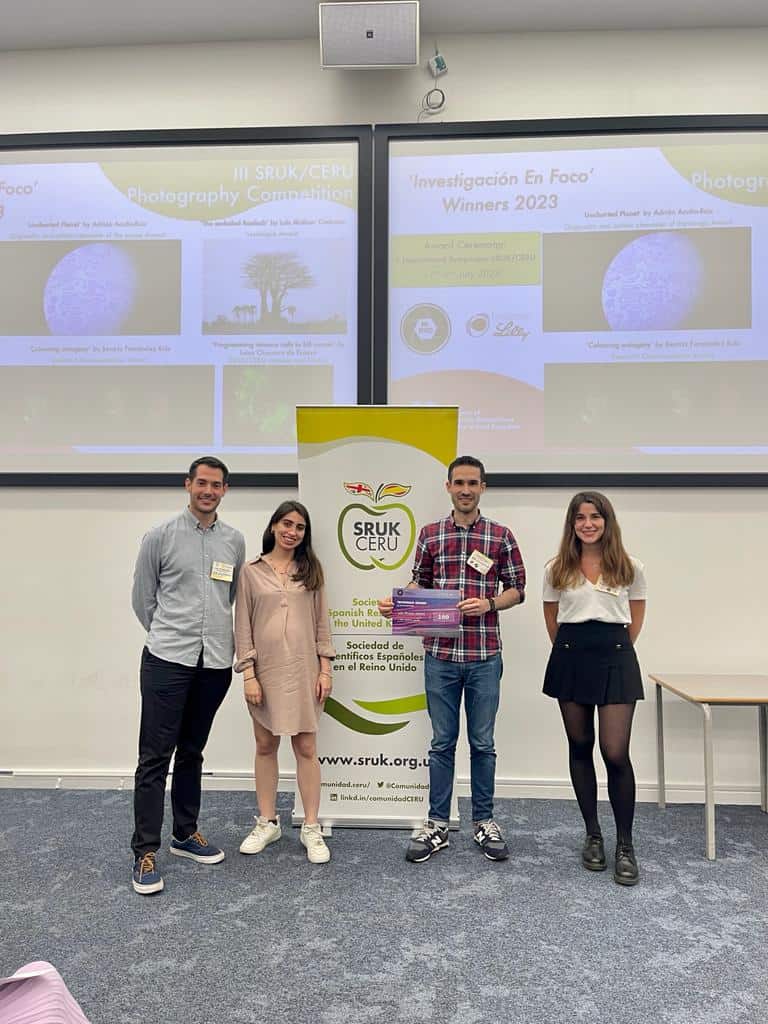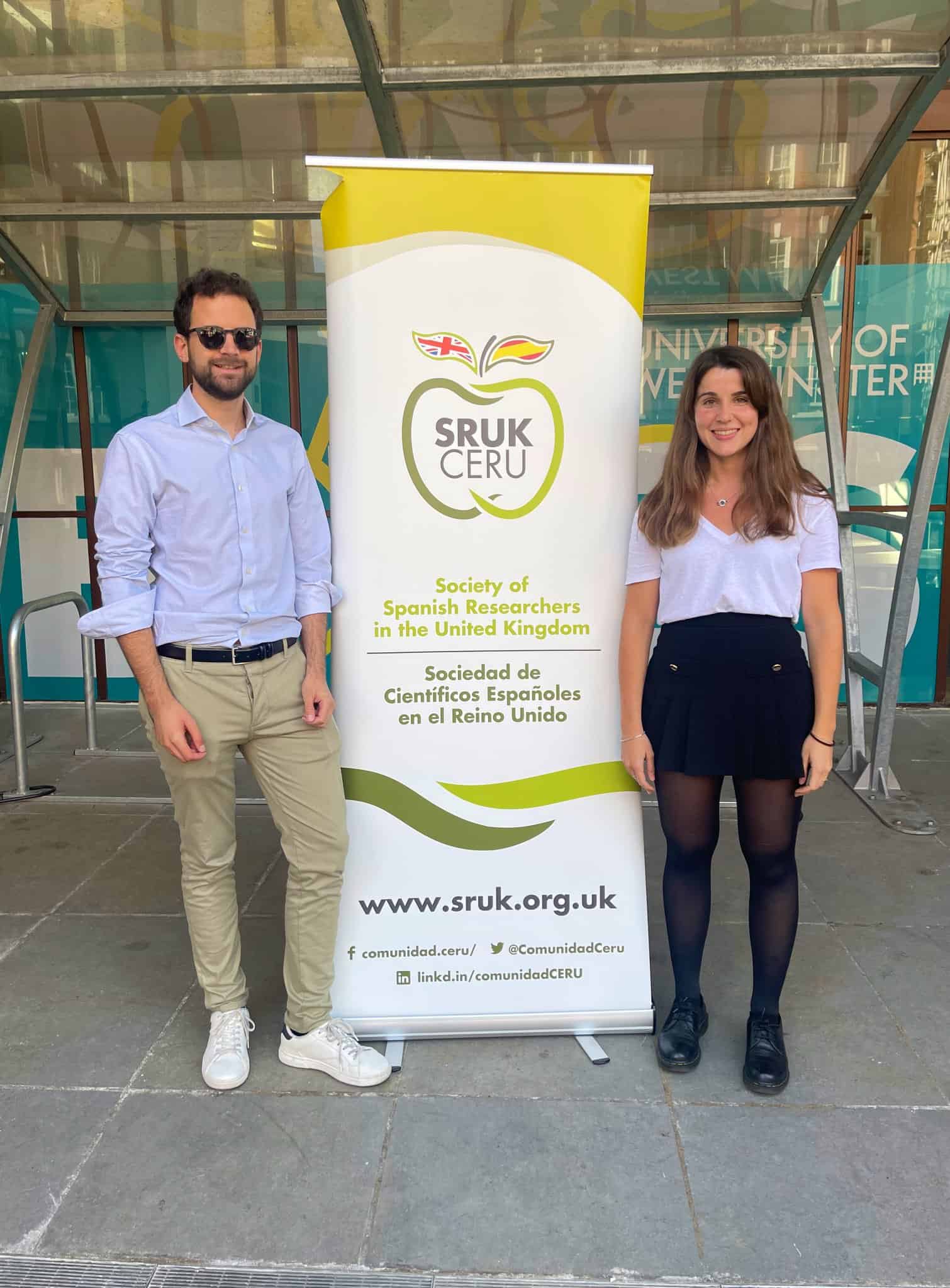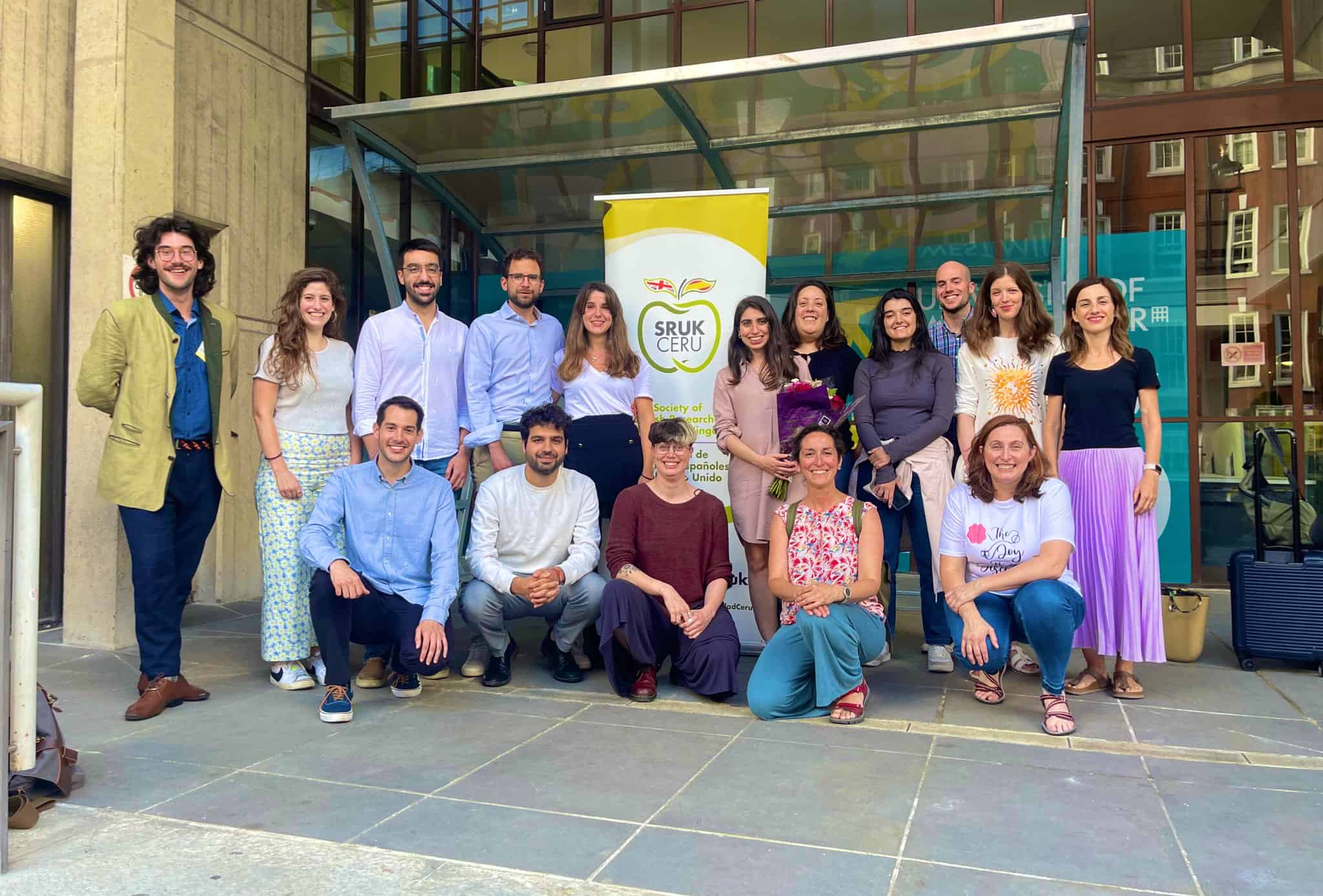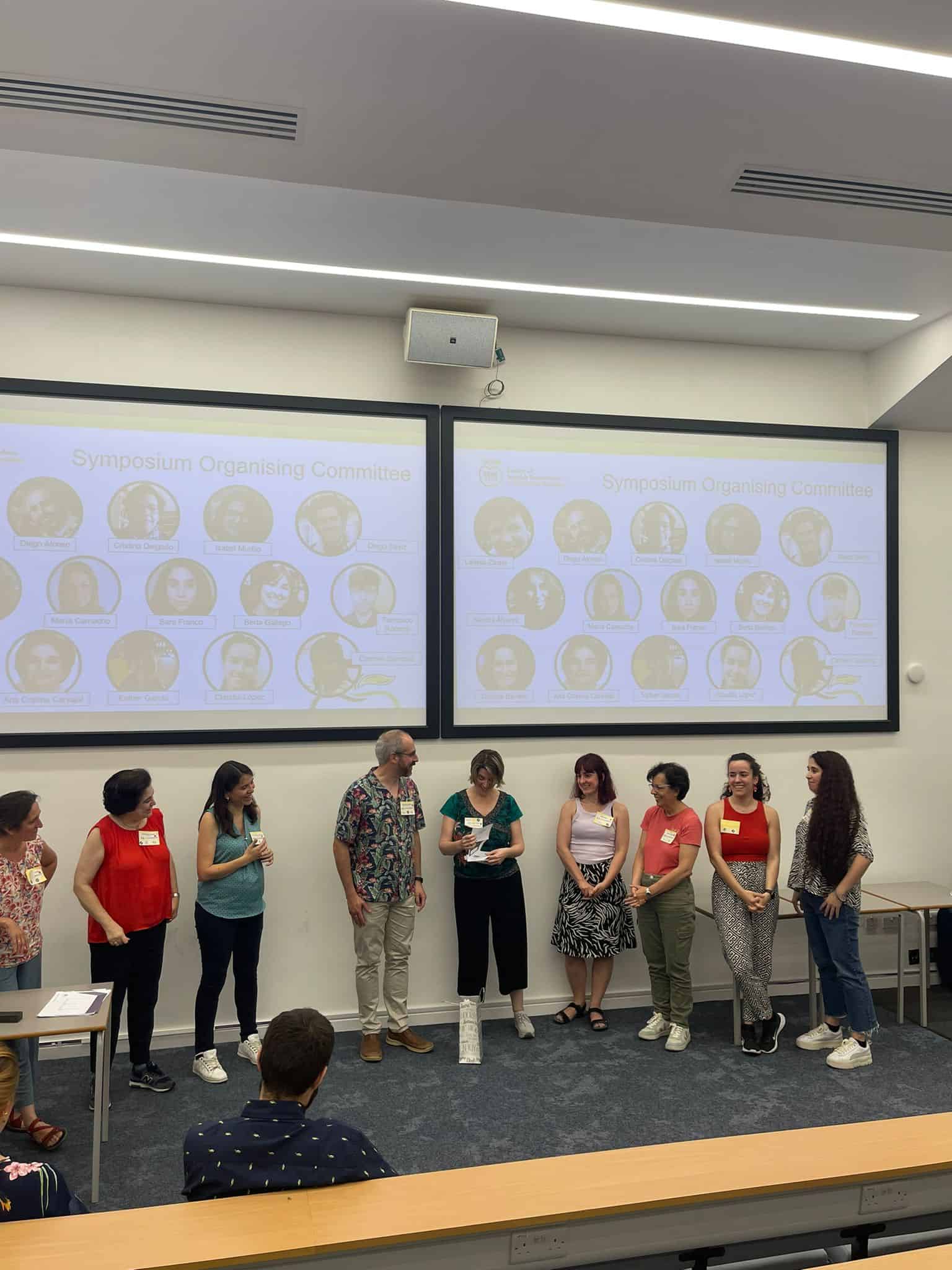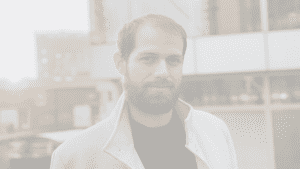- The Society of Spanish Researchers in the UK (SRUK/CERU) organised their X International Symposium in London, where “Forging Connections” was the underlying theme highlighting the importance of networks in today’s world.
- Renowned scientists from different research backgrounds, such as Prof Clara Grima Ruiz, Prof Rosario Rueda Cuerva, Prof Pilar López Sancho, and Prof Soledad Torres Guijarro, passionately shared facts that highlighted the value of multidisciplinarity and intersectionality in all research teams.
- This annual meeting gathered institutions and organisations key to the interactions between the UK and Spain, as well as Spanish researchers from different disciplines and geographical locations in the UK who shared their research projects and interests. The attendees actively took part in discussions meant to set new goals for the future of the Society.
London, 10th of July 2023. The Society of Spanish Researchers in the United Kingdom (SRUK/CERU) hosted its X International Symposium in London this weekend. The welcome reception took place at The Royal Institution of Great Britain, an iconic place where many renowned researchers such as Dorothy Crowfoot Hodgkin and Michael Faraday once worked. The event was hosted by Dr Diego Alonso Álvarez and Dr Larissa Zárate García, co-Chairs of the Symposium, and counted with approximately a hundred attendees. The event opened with welcome speeches by Dr Claudia Román Montañana, former SRUK/CERU President; Mr Pedro Serrano de Haro, European Union Ambassador in the United Kingdom; Ms Rosario Bernal García, General Consul of Spain in London, Mr Raimundo Pérez-Hernández y Torra, Director of the Ramón Areces Foundation; Ms Imma Aguilar Nácher, Director of the Spanish Foundation for Science and Technology (FECYT); and Dr Francisco Vilaplana, President of the Network of Associations of Spanish Researchers and Scientists Abroad (RAICEX). All of the speakers aforementioned highlighted the great work that SRUK/CERU has been continuously doing since its beginnings to keep the forging connections between Spain and UK. The General Consul of Spain praised the Society’s achievements, highlighting how “the exchange of knowledge and ideas ensures collaborations and mobility”.
The first keynote speaker was Prof Clara Grima Ruiz, part of the Department of Applied Mathematics at the University of Seville, who inspired the audience when talking about the importance of mathematics in our daily lives, focusing on graph theory and how it has been used in many aspects of our society: from building tube maps to modulating people’s behaviours in social networks. She showed her passion about scientific outreach as a means to engage the new generations into a theme that has always been overlooked, and feared. In her own words, “When children hear the word Maths, areas of pain switch on in their brains. Graph theory can be disguised as a game, and it is a powerful tool to detect mathematical talent at a very young age. We need to stimulate the mathematical talent in children. For the future. To save the world”. The second keynote of the night was Prof Rosario Rueda Cuerva, group leader in Psychology at the University of Granada. The audience followed her experiments studying babies’ minds with excitement. She explained how some babies’ behaviours indicate cognitive abilities such as deductive logic, intuition, and notions of statistics, which can help anticipate outcomes and identify experiments with illogical answers. She explained that the alpha frequency, a measure of cognitive memory and attention, is already high in babies’ brains. Circuits that increase connectivity efficiency between parts of the brain start developing in six-months-old babies, proving that the little ones are already scientists: they are constantly researching.
On Saturday, the session started with Prof Pilar López Sancho, Honorary Professor in the Department of Materials Theory and Simulations at the CSIC (Spanish National Research Council), about gender bias in research. She used several publications to highlight the impartiality of the research system and how women are under-represented at the highest-level in technical professions and decision-making bodies, while also being far from reaching salary parity. Despite the efforts put into equality since 1990, stereotypes still stop women from being hired and funded. Prof López Sancho highlighted that ”Peer-review scores for postdoctoral fellowships applications are riddled with prejudice. Science faculties tend to consider male candidates more competent and employable. Women are significantly less credited with authorship. Women’s contribution to research is systematically less recognised. Therefore, education about gender bias should be essential to transform our work forward in an inclusive and sustainable way so that we can achieve progress for everyone”.
The day followed with a roundtable with representatives of the Network of Associations of Spanish Researchers and Scientists Abroad (RAICEX): Dr Francisco Vilaplana (current president of RAICEX), Dr Javier Escudero (former president of SRUK/CERU and first president of RAICEX), Dr Guillermo Pérez (president of Spanish scientists in the Federal Republic of Germany), and Dr Mónica Vara (president of Spanish Scientists in Belgium). They shared their expertise and knowledge acquired by working in a global scientific context where international collaborations are essential. Javier Escudero highlighted that “Our impact on Spanish politics changed radically with the birth of RAICEX. Now, politicians have a very specific point of contact to engage in a conversation with Spanish researchers abroad”.
On Sunday, Prof Soledad Torres Guijarro, from the Department of Theory of the Signals and Communications at the University of Vigo, warned us about the harmful outcome of human-made underwater noise pollution. As a result of her research, developed at the coasts of Galicia, she has found that “Marine animals produce sound intentionally to communicate, mate, feed and detect danger. The increase of vessel noise is a threat to their lives. Our models can influence political decisions, such as rerouting passenger ships or relocating mussel farms”. In the second part of her talk, she presented her work as part of gender and LGBTIQ+ related organisations such as the Vigo-based organisation Nos Mesmas: “As a researcher, you have the responsibility to critically think about the intersectionality of your project. From team building and methods to disseminating your research, include gender dimensions! It’s not easy, but experts and funding are already available to promote this equity”.
The attendees also enjoyed the diasporas roundtable with established societies of European researchers working in the UK, which included Dr Javier Pardo Diaz (SRUK/CERU), Dr Fernanda Bajanca (Marie Curie Alumni Association), Dr Diogo Martins (Portuguese Association of Researchers and Students in the UK), Dr Ala Santos (Polonium Foundation) and Dr Nathalie Van Meurs (Dutch Academy Network UK). Ala Santos stressed that “Our power as diasporas is the network and pressure we can make together in the UK, our countries of origin, and the countries that surround us”.
The sessions included short talks by SRUK/CERU members, specially early career researchers, as well as engagement sessions with FECYT and the Axencia Galega de Innovación (GAIN), two of the sponsors of this Symposium. María José Mariño, representative of GAIN, highlighted that they aim to engage and speak with all the scientific societies led by Spanish researchers abroad. In her own words, “Hearing your voice in the organisation of the national scientific system and scientific politics is critical. And, to do that, you need continuous financial support to keep up with your work”. Other sessions led by various SRUK/CERU members attending the event included discussions on the direction that SRUK/CERU should follow in the future to keep improving and engaging new and current members in their organisation and development.
During the Symposium, the winners of the SRUK/CERU photography contest EnFoco were announced: Adrián Acuña with “Uncharted Planet”, winner of the Originality and Artistic Character of the Image award; Luis Moliner Cachazo with “The secluded baobab”, winner of the Technique and Quality award; Beatriz Fernández Ruiz with “Colouring ontogeny”, winner of the Research Communication award; and Luisa Cocharro de Erauso with “Programming immune cells to kill cancer”, winner elected by SRUK/CERU members and Friends. Their pictures have managed to make the public and the jury members fall in love with the way they illustrate the beauty of research. This initiative was supported by the Ramón Areces Foundation and the Spanish Embassy in the United Kingdom. Fundación Lilly sponsored the award for Best Poster 2023 with which Sergio Serrano Blanco was warded and for Best Talk 2023, which was delivered to Asier Rodríguez Muguruza. A total of ten SRUK/CERU Travel Grant awards were also announced, with which the awarded SRUK/CERU members will be able to attend international conferences to present their research projects and expand their research network.
As a Society promoting international engagement and interdisciplinary networking, this X edition of their International Symposium offered a space for SRUK/CERU members to discuss the Society’s current and future place in the global landscape. In addition, the Symposium hosted different talks on critical topics such as the importance of considering gender and intersectionality in research projects. The X International Symposium SRUK/CERU was a great opportunity to dive into the process of developing networks between researchers and institutions, and served as a platform to give visibility to the groundbreaking impact carried out as a Society linking Spain and the UK.
